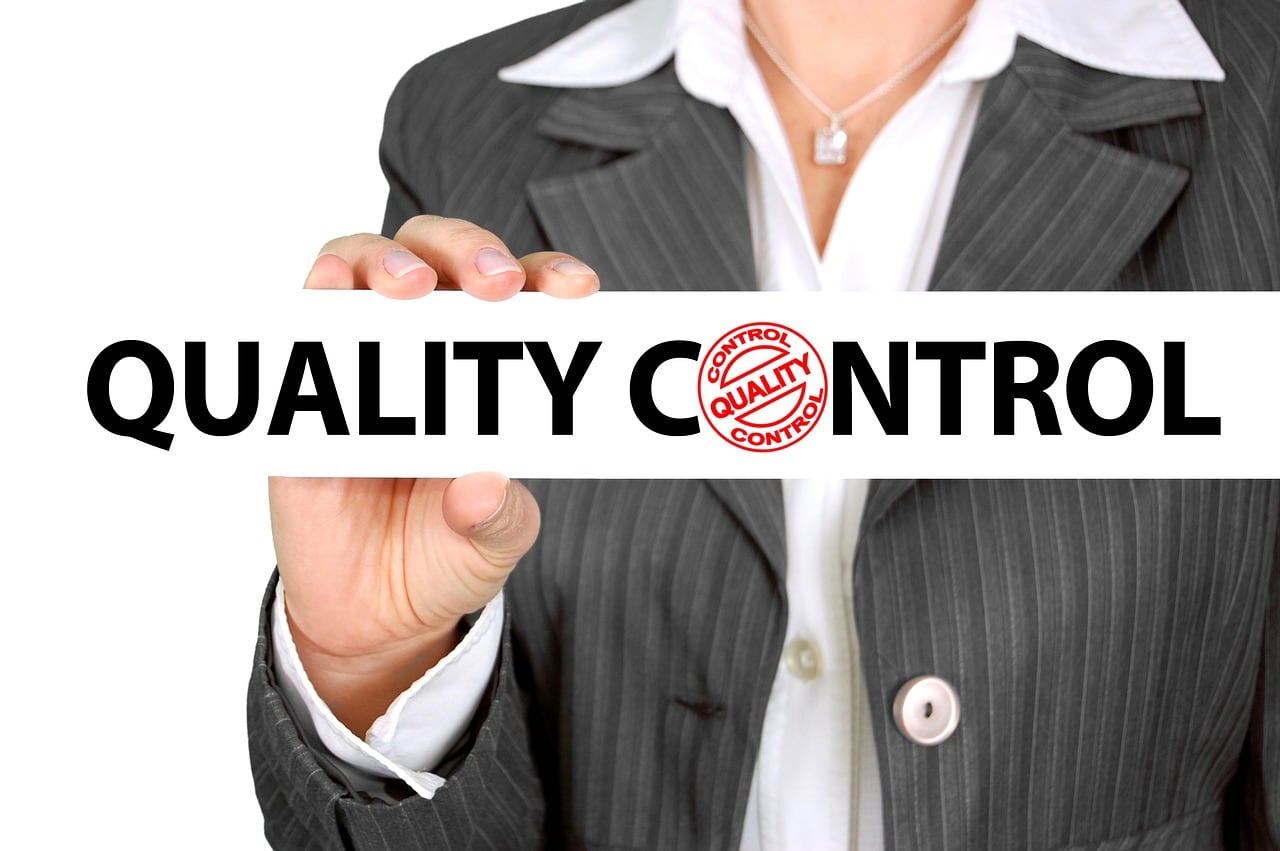The Benefits of Getting Certified in Event Planning

Are you looking to stand out in the world of event planning? Earning a certification can give you an edge over your competition. Event planning certifications are becoming increasingly popular as they provide greater assurance of skills and knowledge in the field, thus making it easier for employers to find qualified professionals. In this article, we will discuss what event planning certifications are, their benefits, the different types available, the requirements for obtaining one, and much more.
What is Event Planning Certification?
Event planning certification is a qualification that proves an individual has met the necessary standards and criteria to operate in the events industry. It provides a benchmark of knowledge and skills, demonstrating that the individual is competent in event planning and management. Certifications are available from numerous organizations, such as Meeting Professionals International (MPI) and the International Live Events Association (ILEA). These certifications will vary depending on their level of difficulty, but generally include topics such as event design, risk management, return on investment analysis, hybrid events, virtual events, and more. With an event planning certification, you can gain recognition for your work as well as increased opportunities for professional growth.

An event planning certification is a valuable asset that can open many doors of opportunity. It's an investment in yourself and your future, and it will be worth every penny. With a certification in hand, you'll be ready to take the next step toward success! Now let's explore the Benefits of Event Planning Certifications and see how they can help you reach your goals!
Benefits of Event Planning Certifications
Event planning certifications provide a wide range of benefits for individuals and organizations. They demonstrate to potential employers that you are knowledgeable and experienced in the field, which can help you stand out from the competition. With a certification, you can pursue higher-level positions, earn greater salaries and increase your chances of promotion. In addition, certifications provide networking opportunities, access to industry resources, and recognition for your accomplishments. Finally, they can give you the confidence to take on bigger projects with more complex requirements. Event planning certificates offer a valuable credential that will be an asset throughout your career.
Types of Event Planning Certificates
Event planning certificates are available in a variety of formats and levels. Corporate event planners may pursue a Professional Event Planner (PEP) certification, which is offered by the International Live Events Association (ILEA). Those interested in organizing weddings or special events can enroll in a Certified Wedding and Event Planner Program. The Meeting Professionals International (MPI) offers two certifications for meeting and event professionals: Certified Meeting Professional (CMP) and Global Certification In Meeting & Event Management (GCMEM). There is also an Event Risk Management Certification program that focuses on risk management, return on investment, event design, and more. Finally, there are hybrid certifications like the Certificate in Event Planning & Management that cover all aspects of the events industry. No matter what type of event you plan to specialize in, there is a certification program to fit your needs.
No matter what type of event you plan to specialize in, there is a certification program that can help you reach your goals. With the right certification, you can become an expert in the field and make a name for yourself. Get started now by exploring your options for becoming a Certified Meeting Professional (CMP), a globally-recognized certification that can take your event planning career to the next level!
Certified Meeting Professional (CMP)
The Certified Meeting Professional (CMP) certification is a globally-recognized credential for meeting and event professionals. The CMP program focuses on developing the skills and knowledge needed to plan, manage and execute successful events. It covers topics such as event risk management, return on investment, budgeting, event design, marketing, and more. The certification requires applicants to have a minimum of three years experience in the industry as well as pass an exam. Those who complete the program will benefit from improved job prospects, higher salaries, and recognition from their peers in the industry. Additionally, having a CMP designation can also help demonstrate professional credibility when working with clients. So if you're looking to take your career in event planning to the next level, getting your CMP certification is a great way to get there!
The individual holds the designation of Certified Special Events Professional (CSEP).
Certified Special Events Professional (CSEP) is a professional certification awarded to those in the events industry who demonstrate knowledge and skill in planning, executing, and managing special events. This certification program focuses on best practices, event marketing, event safety, and customer service as well as understanding laws and regulations related to event planning. CSEPs must complete successful coursework as well as pass an exam to receive their certification. With this designation comes increased job opportunities, higher salaries, and greater recognition from peers in the field. Holding the CSEP credential can help you stand out from your competition when working with clients and show them that you are professionally qualified for the task at hand. So if you want to take your event planning career to the next level, obtaining your CSEP certification is a great way to get there!
CGMP stands for Certified Government Meeting Professional.
Certified Government Meeting Professional (CGMP) is a professional certification designed to recognize the knowledge and skills required to successfully plan, manage, and execute government meetings. To obtain this certification, individuals must complete coursework in government meeting planning and management topics as well as pass a comprehensive exam. This certification is highly valued within the events industry and can help event planners showcase their expertise when working with public sector clients. Obtaining a CGMP designation can lead to increased job opportunities, higher salaries, and greater recognition from peers in the field. With this credential comes an understanding of laws and regulations related to government meetings as well as mastery of customer service, risk management, return on investment, and event design principles. Those who hold this certification have proven their commitment to excellence in the field of government meeting planning.

Certificate Programs in Event Management and Planning
Certificate Programs in Event Management and Planning are designed to provide professionals with the knowledge and skills necessary to successfully plan, manage, and execute events. These certificate programs can be completed online or in person and typically require coursework in topics such as event design, budgeting, marketing, risk management, customer service, and return on investment. Upon completion of a certificate program in event management and planning, participants are able to demonstrate their expertise when working with clients, increase job opportunities, receive higher salaries, and gain recognition from peers within the events industry. Certificates in event management and planning also give individuals an understanding of all aspects of event production including legal requirements for certain types of events as well as knowledge on how to properly organize large-scale events such as corporate functions or weddings. With this certification comes the ability to identify potential issues before they arise and execute successful events that meet customer needs.
Requirements for Obtaining an Event Planning Certification
Obtaining an event planning certification requires a combination of education, experience, and skill. Education is often required in the form of a degree or certificate program in event planning. This can be obtained through an accredited college or university, or online coursework. Additionally, some certification programs require individuals to have existing industry experience such as working with corporate events, weddings, and other special events. Other requirements include knowledge of budgeting, marketing strategies, customer service skills, and risk management. Some certifications also require a passing score on an exam as well as written assignments and portfolios showcasing the applicant's work. With these qualifications met and the appropriate documentation submitted, individuals are then able to receive their official event planning certification.
Those who have the right combination of education, experience, and skill can obtain an event planning certification that will give them a leg up in their industry. With the proper qualifications and documentation, individuals can become certified event planners and open new opportunities for themselves. Now that you know what it takes to get certified, let's explore the education requirements needed to do so.
Education Requirements
Education requirements for obtaining an event planning certification vary depending on the specific program chosen. Generally, applicants need to have a high school diploma or GED, as well as some college coursework in related fields such as hospitality management or marketing. Additionally, experience in the events industry is often required for some certifications. Online courses are available for those who want to increase their knowledge of the events industry and gain the necessary skills needed to qualify for an event planning certification. After completing these courses, individuals should complete any necessary written assignments and portfolios that may be required by their chosen certification program. Finally, a passing score on an exam is usually required before certification can be awarded. With these qualifications met, individuals can then move forward with getting certified and improving their career prospects in the events industry.
Experience Requirements
Experience requirements for obtaining an event planning certification vary depending on the specific program chosen. Generally, applicants need to have a minimum of one year of experience in the events industry or related fields such as hospitality and marketing management. Candidates may also be required to provide references from supervisors or other industry professionals who can attest to their work experience and skill level. Additionally, some certifications require candidates to have completed certain courses related to event planning or possess specific knowledge of various aspects of the profession, such as risk management, budgeting, and design. Ultimately, successful applicants should demonstrate that they have the necessary expertise and understanding to plan events successfully. With these qualifications met, individuals can then move forward with getting certified and improving their career prospects in the events industry.
Exam Requirements
Exam requirements for obtaining an event planning certification can vary depending on the specific program chosen. Generally, applicants need to have successful completion of the course and pass the exam to become certified. The exams, which are typically administered online or in person, focus on topics such as event design, budgeting, and risk management. Additionally, some certifications require candidates to demonstrate their ability to plan and execute a successful event to be fully certified. Furthermore, exams may take anywhere from several hours to several days depending on the complexity of the material covered. With these qualifications met, individuals can then move forward with their certification and pursue more advanced roles within the events industry.
Meeting Professionals International (MPI) Certification Program
Meeting Professionals International (MPI) is a leading certification program for event professionals. It provides a comprehensive curriculum covering all aspects of event planning, from budgeting and risk management to creative design. The program includes an online course and exam, as well as an in-person practicum that requires applicants to demonstrate their ability to plan and execute a successful event. Upon completion of the program, participants are awarded a professional certification that is recognized by many leading companies in the industry. MPI also offers other certifications such as meeting management and social events certificates. With MPI's exceptional level of education and training, individuals can become experts in the event planning field and find success in their chosen profession.
The MPI Certification Program is an invaluable tool for event professionals looking to advance their careers and gain recognition in the industry. With comprehensive courses, exams, and a practicum, individuals will become experts in event planning - setting themselves up for success. Get ready to learn more about what this program has to offer with our overview of the MPI Certification Program!

Overview of the MPI Certification Program
The MPI Certification Program is a unique and comprehensive program for event planners. It offers a range of courses, exams, and a practicum to help individuals become experts in the field of event planning. With its comprehensive curriculum, participants learn about budgeting and risk management, creative design, and much more. After completing the program, individuals will receive recognition as an expert in their profession with the certification they receive from MPI. This certification is highly valued by leading companies in the events industry, allowing them to gain success in their chosen careers. The MPI Certification Program is an invaluable tool for event professionals looking to advance their knowledge and skillset - setting themselves up for success in the events industry!
Advantages of MPI Credentials
MPI credentials are highly sought after in the event planning industry, and rightly so. Earning an MPI certification can open many doors for event planners, allowing them to work with some of the most successful companies in the events industry and boost their career prospects significantly. Not only do these certifications show that you have a comprehensive knowledge and understanding of event planning, but they also demonstrate commitment to your profession and a dedication to excellence. With an MPI credential, you can set yourself apart from other professionals in the field, showing potential employers that you have taken the time to invest in your professional development. For those looking to make a mark in the events industry, MPI is the perfect place to start!
Risk Management for Events
Risk management is an essential part of event planning and one that should not be overlooked. Event planners need to take a proactive approach when it comes to risk management, as this will help them identify potential issues before they arise and come up with solutions to avoid or mitigate them. Event planners should create a comprehensive risk management plan that outlines the risks associated with each event, such as health and safety, legal compliance, financial liability, data security, and more. This plan should also include detailed procedures on how to mitigate these risks if they arise. Taking the time to properly manage risks can go a long way in ensuring the success of your events.
People also ask
What is the significance of event planning certifications?
Event planning certifications and certificates refer to programs or courses that provide individuals with the knowledge and skills necessary to plan, organize, and execute events successfully. These programs can range from short-term to long-term courses and are offered by various institutions, including universities, event planning organizations, and online learning platforms. Most of these programs cover topics such as event design, budgeting, marketing, logistics, risk management, and vendor relations. Obtaining a certification or certificate in event planning can improve one's credentials, increase job opportunities, and enhance their professional network. However, it is important to note that not all certifications and certificates hold the same value, and one should research thoroughly before investing time and money in a program.
What is the significance of obtaining an Event Planning Certification?
Event planning certification is important because it provides individuals with the necessary skills and knowledge to effectively plan and execute successful events. Certification programs cover everything from budgeting and logistics to marketing and vendor management, ensuring that event planners are well-prepared to handle any challenges that may arise. Additionally, certification can provide credibility and recognition within the industry, which can lead to more job opportunities and higher salaries. Employers may also prefer to hire certified event planners as it demonstrates a level of commitment and professionalism to the field. Ultimately, event planning certification can help individuals stand out in a competitive industry and increase their chances of success.
What is the duration of the certification's validity?
The length of time that certification is valid varies depending on the certification program and the organization that offers it. Some certifications may be valid for a lifetime, while others may require renewal every few years. The validity of certification is typically based on the industry standards and the skills and knowledge required to maintain the certification. Individuals need to research the certification program they are interested in and understand the renewal requirements before pursuing it. Renewal requirements may include continuing education, work experience, or passing an exam. Maintaining a valid certification can be beneficial for career advancement and demonstrating expertise in a particular field.

Comments